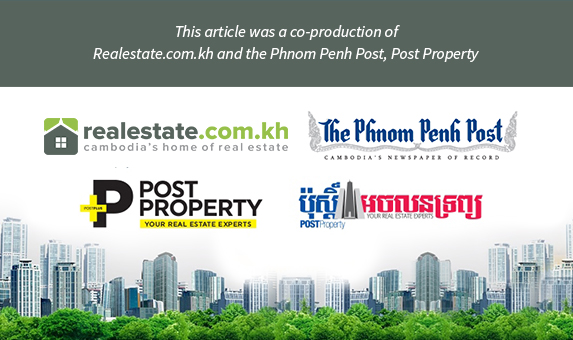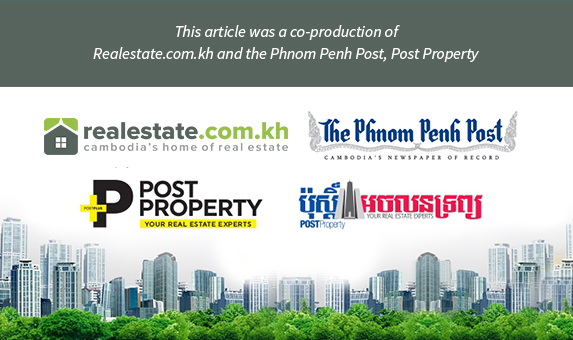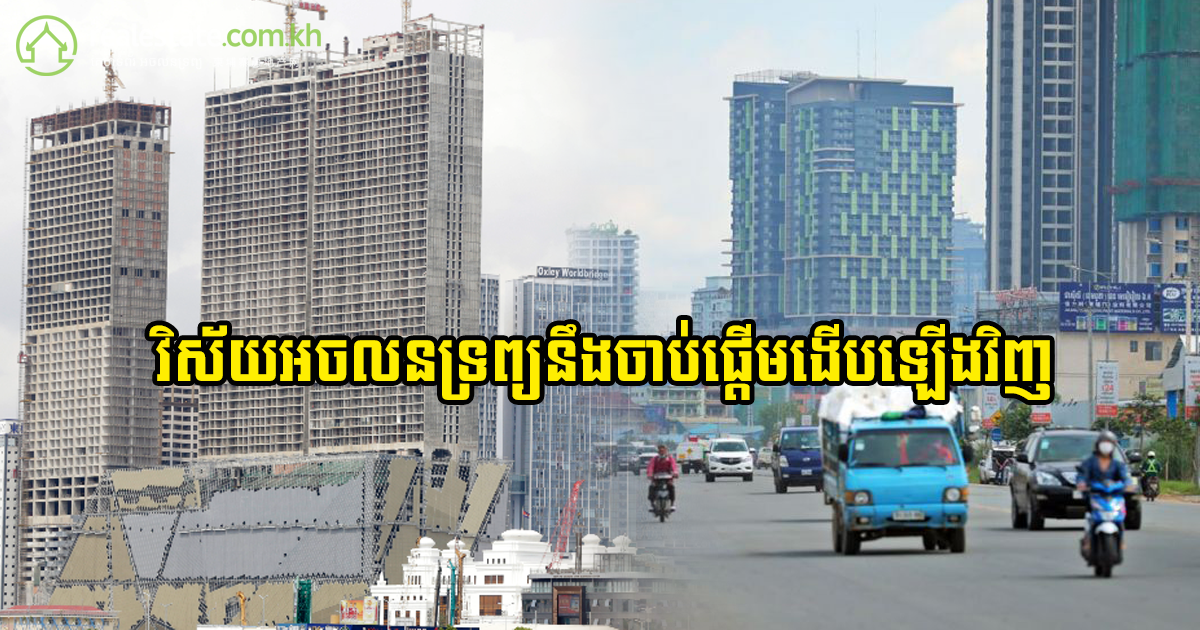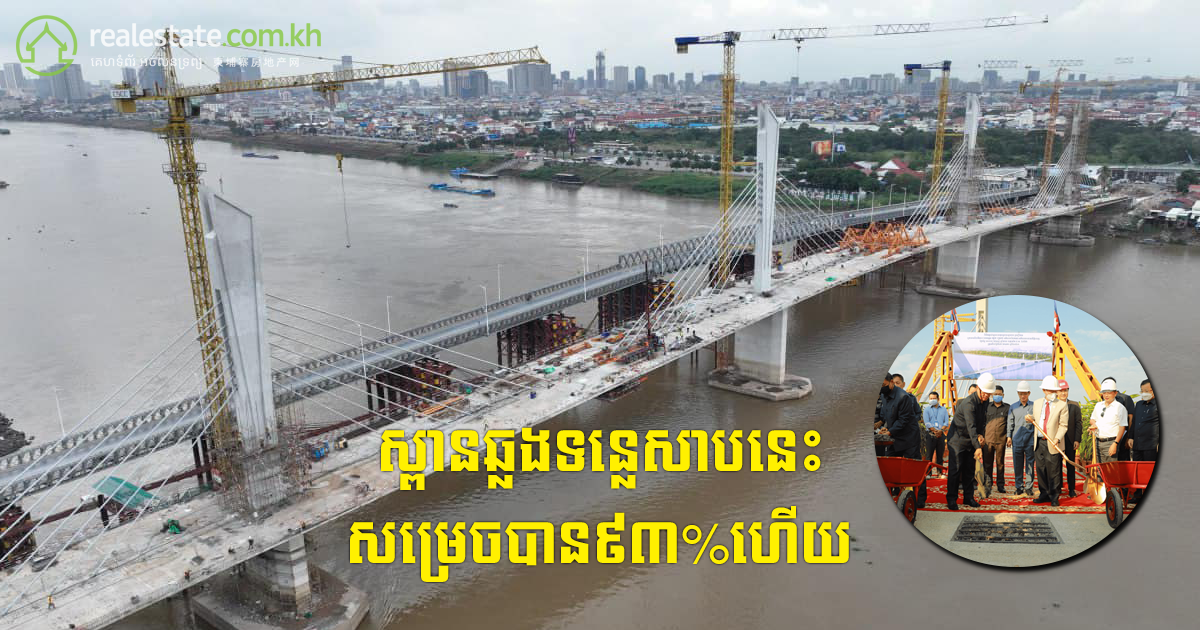Budget should not be the only concern for home buyers when they are deciding on a new property! Realestate.com.kh examines the number 1 factors that scare buyers from investing in real estate in certain areas and localities.  Before deciding to buy or rent any new property, you must first weigh up the pros and cons of not only the property that you are looking at, but also the area where that property is located. While your property might look like a steal at first, sometimes paying a bit extra to live in a more expensive area could pay off in regards to the available infrastructure and amenities. In Phnom Penh, Sihanoukville, and other centers in Cambodia, investors choose infrastructure over cheaper prices. For example, Special Economic Zones are extremely popular for foreign investors in Cambodia looking to manufacture: “Overall, an SEZ is a safe place for FDI because the conditions are found to be stable, safe and have less inherent investment and direct operational risk as opposed to locating outside of an SEZ,” said Charles Esterhoy, former-COO of Phnom Penh Special Economic Zone (PPSEZ). This is despite the fact that these areas are more expensive in regards to price per square meter. Read more about SEZ infrastructure in Cambodia here. Buyers looking for a property for their own personal or business use will always prioritize the location of that new property, and social, civil and physical amenities/infrastructure available nearby. In regards to short term investors, these types of buyers still need to consider the area’s fitness. They might decide to occupy the property at some point, or alternatively, they might be dependent on rental returns from the property to sustain their investment. Regardless of the use, the capacity and attractiveness of the property becomes crucial. Below are the major factors that will discourage property buyers from investing in a particular area/locality: Vacancy: Particularly high vacancy levels throughout any locality will damage the the confidence levels of any investor. Low residency means hidden problems may be lurking in the area and these will make prospective buyers slow to invest in the locality/area. Maybe the infrastructure has some holes? Open Lot: An open piece of land sitting at the back of a residential building is warning sign for Investors also. Why? because it may get developed into almost anything in the future. Imagine if a noisy factory appears on the unit in the future - this will damage your quality of life and the resale value of the property. However, on the flip side of the coin, if that plot is turned into a beautiful park/garden, it could well add to the value of your building dramatically. Hence, the trick is when there is any free land in the neighborhood to gauge the future ownership and intended usage of that property before you buy. Poor Logistical Connectivity: Lack of transport access, and public transport services, will lower the attraction to even the dreamiest real estate. This infrastructure is crucial! It is wonderful to live on a coastal mountain overlooking the ocean - but if a trip to the city involves a 3 day horseback trek, chances are the property will lose its aura fairly quickly. In the city, real estate that is ages from metro stations, bus stops, main highways and any other crucial transport hubs will generally command much lesser price per square meter than those that have an array of easy transport options located nearby. Distance from Necessities/Amenities: City properties that do not have markets, schools, hospitals, ATMs, cafes, banks etc. in the close vicinity will also generally extinguish the buyer’s interest. Too larger distance from these types of amenities can affect the value of the property hugely. For personal use or for an investment purpose, remoteness from basic necessities is not an appealing factor when considering buying any house. In the commercial sphere, buying land or real estate with access to key transit corridors, artery roads, warehousing facilities and storage options are valued highly. Nowhere to Park: This is becoming an increasing problem in Phnom Penh. Without ample and convenient parking zones, a new properties value can be uncertain. Especially in cities like Phnom Penh, where many believe that personal vehicles are a necessity, parking spaces must be considered before buying into a property - be it commercial, an office tower, or residential premises. Tenants too must make this consideration a priority. Water Issues: Having a sound and reliable water supply in terms of quality and quantity is something that almost no buyer can compromise on. Hence, you should stay away from localities where the water supply is in short supply and/or poor in quality. It will naturally be extremely difficult to sell or rent a property in a dry locations. Power Outages: Frequent power cuts will adversely affect any buyer’s decision. Backup power sources such as generators on your property may provide a short term solutions, and these are extremely common throughout the Cambodian provinces, yet living in a neighborhood with frequent power cuts or dodgy power service will usually overshadow and deteriorate any positive attributes of the property. Hows the Neighborhood? The state of the neighborhood also affects the property buyer’s ultimate decision. No streetlights, damaged roads, poor waste disposal services and noisy features can become crucial turn-offs for new buyers and renters. Safety is very important also. Crime in the vicinity is never welcomed. Hence, localities with imbalanced neighborhoods will naturally yield lesser income and profit from property sales and rentals, and hence, are unpopular among investors - short or long term.
Before deciding to buy or rent any new property, you must first weigh up the pros and cons of not only the property that you are looking at, but also the area where that property is located. While your property might look like a steal at first, sometimes paying a bit extra to live in a more expensive area could pay off in regards to the available infrastructure and amenities. In Phnom Penh, Sihanoukville, and other centers in Cambodia, investors choose infrastructure over cheaper prices. For example, Special Economic Zones are extremely popular for foreign investors in Cambodia looking to manufacture: “Overall, an SEZ is a safe place for FDI because the conditions are found to be stable, safe and have less inherent investment and direct operational risk as opposed to locating outside of an SEZ,” said Charles Esterhoy, former-COO of Phnom Penh Special Economic Zone (PPSEZ). This is despite the fact that these areas are more expensive in regards to price per square meter. Read more about SEZ infrastructure in Cambodia here. Buyers looking for a property for their own personal or business use will always prioritize the location of that new property, and social, civil and physical amenities/infrastructure available nearby. In regards to short term investors, these types of buyers still need to consider the area’s fitness. They might decide to occupy the property at some point, or alternatively, they might be dependent on rental returns from the property to sustain their investment. Regardless of the use, the capacity and attractiveness of the property becomes crucial. Below are the major factors that will discourage property buyers from investing in a particular area/locality: Vacancy: Particularly high vacancy levels throughout any locality will damage the the confidence levels of any investor. Low residency means hidden problems may be lurking in the area and these will make prospective buyers slow to invest in the locality/area. Maybe the infrastructure has some holes? Open Lot: An open piece of land sitting at the back of a residential building is warning sign for Investors also. Why? because it may get developed into almost anything in the future. Imagine if a noisy factory appears on the unit in the future - this will damage your quality of life and the resale value of the property. However, on the flip side of the coin, if that plot is turned into a beautiful park/garden, it could well add to the value of your building dramatically. Hence, the trick is when there is any free land in the neighborhood to gauge the future ownership and intended usage of that property before you buy. Poor Logistical Connectivity: Lack of transport access, and public transport services, will lower the attraction to even the dreamiest real estate. This infrastructure is crucial! It is wonderful to live on a coastal mountain overlooking the ocean - but if a trip to the city involves a 3 day horseback trek, chances are the property will lose its aura fairly quickly. In the city, real estate that is ages from metro stations, bus stops, main highways and any other crucial transport hubs will generally command much lesser price per square meter than those that have an array of easy transport options located nearby. Distance from Necessities/Amenities: City properties that do not have markets, schools, hospitals, ATMs, cafes, banks etc. in the close vicinity will also generally extinguish the buyer’s interest. Too larger distance from these types of amenities can affect the value of the property hugely. For personal use or for an investment purpose, remoteness from basic necessities is not an appealing factor when considering buying any house. In the commercial sphere, buying land or real estate with access to key transit corridors, artery roads, warehousing facilities and storage options are valued highly. Nowhere to Park: This is becoming an increasing problem in Phnom Penh. Without ample and convenient parking zones, a new properties value can be uncertain. Especially in cities like Phnom Penh, where many believe that personal vehicles are a necessity, parking spaces must be considered before buying into a property - be it commercial, an office tower, or residential premises. Tenants too must make this consideration a priority. Water Issues: Having a sound and reliable water supply in terms of quality and quantity is something that almost no buyer can compromise on. Hence, you should stay away from localities where the water supply is in short supply and/or poor in quality. It will naturally be extremely difficult to sell or rent a property in a dry locations. Power Outages: Frequent power cuts will adversely affect any buyer’s decision. Backup power sources such as generators on your property may provide a short term solutions, and these are extremely common throughout the Cambodian provinces, yet living in a neighborhood with frequent power cuts or dodgy power service will usually overshadow and deteriorate any positive attributes of the property. Hows the Neighborhood? The state of the neighborhood also affects the property buyer’s ultimate decision. No streetlights, damaged roads, poor waste disposal services and noisy features can become crucial turn-offs for new buyers and renters. Safety is very important also. Crime in the vicinity is never welcomed. Hence, localities with imbalanced neighborhoods will naturally yield lesser income and profit from property sales and rentals, and hence, are unpopular among investors - short or long term. 

Updated on: June 6, 2022, 5:06 p.m.
Published on: October 10, 2015, 2:48 p.m.



Comments